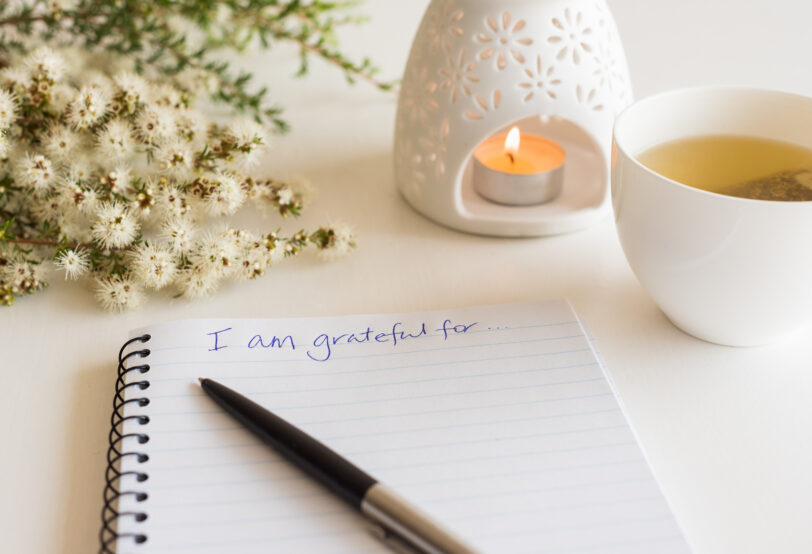
On this page
Finding time to define what gratitude is for you, reflecting on it, and experiencing feelings of gratefulness can have numerous benefits.
Gratitude is a positive emotion of feeling thankful or grateful.
It’s the readiness to return kindness and show appreciation. Gratitude can positively affect people’s moods. Depending on a person’s general disposition and temperament, they may be more prone to experience gratitude than someone else, and that’s okay. For those who lack this natural influence, gratitude can be developed through practice.
Being stressed can interfere with gratitude.
Depression and anxiety cause negative thoughts and feelings which can interfere with experiencing positive thoughts or feelings of gratefulness. People with depression or anxiety can practice gratefulness as a way to manage their symptoms and promote the positive effects that gratitude can have on their mood. Finding time to define what gratitude is for you, reflecting on gratitude, and experiencing feelings of gratefulness can have numerous benefits.
Cultivating gratitude can shift our focus from ruminating on negative emotions to experiencing positive emotions instead. Some of the long-term benefits of practicing gratitude include reduced anxiety and depression symptoms, higher self-esteem, improved optimism, lower blood pressure, less fatigue, better sleep, and more positive relationships (Cherry, 2021).
Below are a few tips to cultivate gratitude:
- Journaling each day focusing on what went well, noticing, and acknowledging positive experiences.
- Before bed, think of or write down three to five things you’re grateful for. Think of things you may sometimes take for granted.
- Practice being present and noticing the small things throughout your day that bring you a bit of happiness or calmness.
- Do things that you know you’ll be grateful for later such as exercise, spending time doing your favorite hobby, spending time with family or friends, doing things you like such as going to a concert, etc.
- Show appreciation to those around you.
- Do an act of kindness.
Regularly practicing gratitude is a mindset shift and lifestyle change.
You may notice a positive improvement to your mood pretty quickly, but the other benefits may take some time. The important thing to remember is to get started, be consistent and you’ll begin to notice the other benefits of gratitude over time. And remember, if you have a bad day, that's ok, don't beat yourself up about being unable to practice gratitude, try again the next day. Developing a gratitude mindset is a process, so there will inevitably be setbacks from time to time.
Makenzie Pacubas, MSW, LCSW
CHE Quality Assurance Associate
Makenzie is a clinical social worker who has worked in the mental health field for over a decade and now works in clinical quality assurance with CHE Behavioral Health Services. Makenzie lives in Kansas City, Missouri with her husband, Justin, and their three pets. She likes music, singing, art, exercise, reading, getting outdoors, and trying new restaurants.
Work Cited
Cherry, K. (2021, October 29). What is gratitude? Verywell Mind. Retrieved August 23, 2022, from https://www.verywellmind.com/what-is-gratitude-5206817



